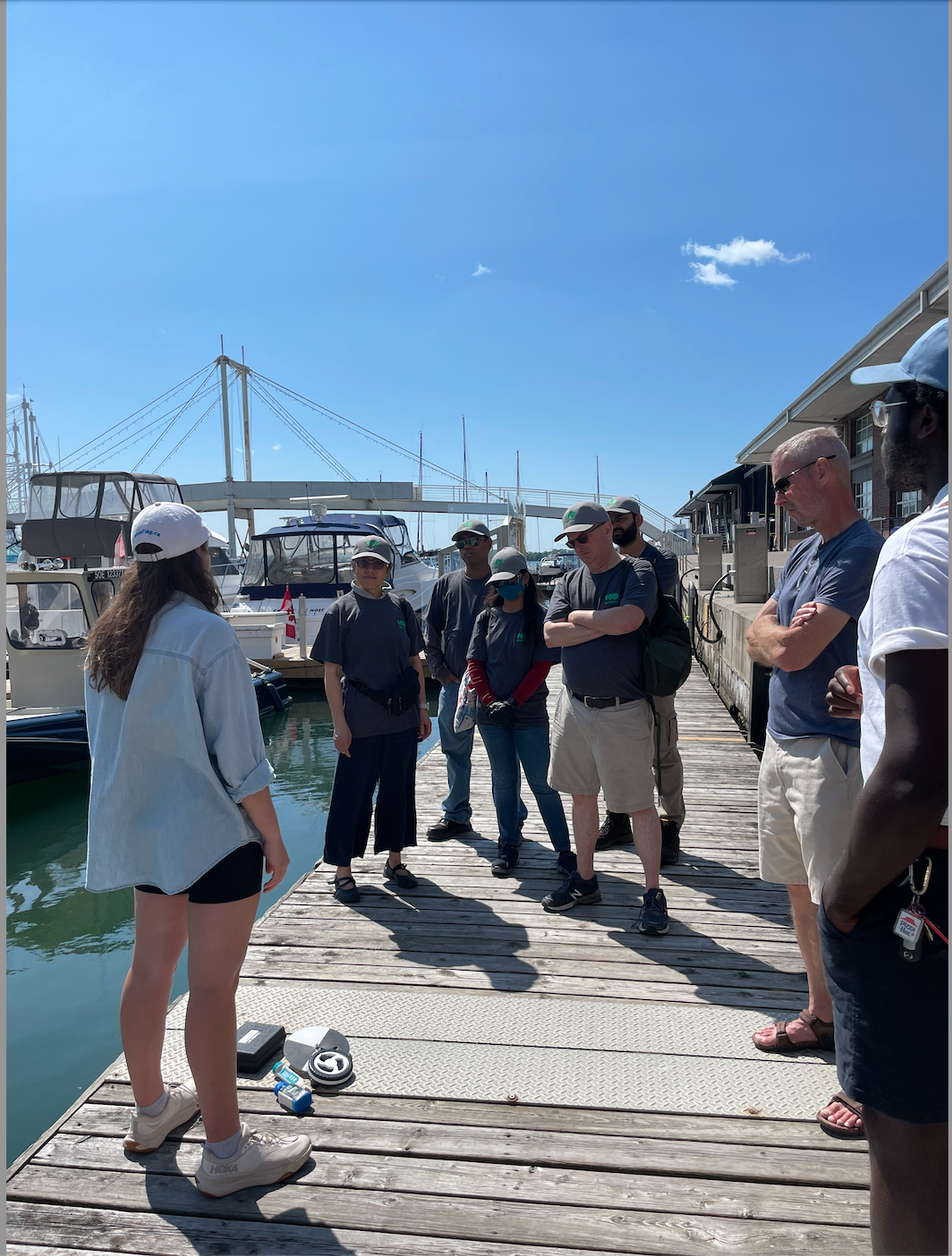10. Inspiring Community Groups to Advocate for Their Local Waters
We understand that achieving swimmable, drinkable, fishable water everywhere is an ambitious goal and one we know we can’t do alone. Thats why community has been at the forefront of so much of our work. We want to share the knowledge and resources we have to inspire people to take action themselves and advocate for the health of their local waterways.
Of of the simplest ways to inspire actions is to provide opportunities for education and conversation. Most of the time, people have the desire to help; they just don’t have the tools yet. That’s why we host speaking events and water literacy workshops. Over the course of Swim Drink Fish’s lifetime, our president, Mark Mattson, has hosted over 200 talks, sharing his passion and story with thousands of people. You can read more about Mark here, but his story is one that displays how one person caring a lot can lead to immense impact.
Our Community-Based Water Monitoring Hubs also work with summer camps, schools, community partners, academic partners, and corporate groups to share our knowledge of our waters through water literacy workshops, catered to the group, with an aim to teach them something new and empower them with the tools they need to take action to protect their water. These workshops often spark interesting conversations and rekindle hope that by working together, we are able to protect and restore our water. Knowledge and understanding through education is a privilege, and making information about water quality more accessible to people allows more people to engage with our work and breaks down barriers to science and advocacy.
“I work almost all our workshops in Toronto, and at every single one, there is always a few people who didn’t know we had a combined sewer system in Toronto, or even what that was. They didn’t understand the consequences of flushing the wrong things down the toilet or putting things they shouldn’t down the drain, and oftentimes, they remarked how they didn’t know they were contributing to a problem with their actions and wished they had known sooner. I feel lucky that I am in the position to educate people about these problems and also have the tools to provide them with easy acts they can take to be water stewards”. - Megan Coad


